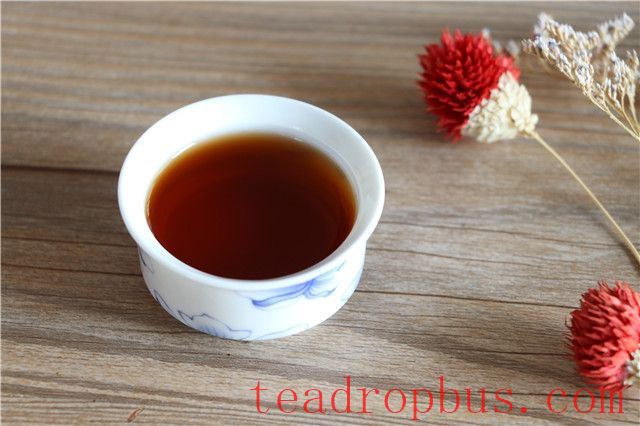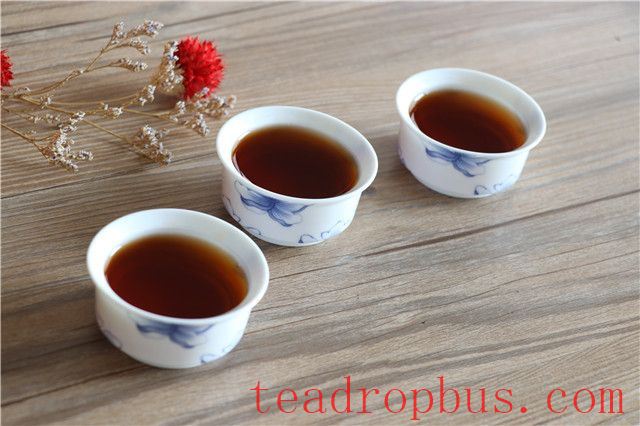Pu'er ripe Tea itself doesn't have any significant side effects. However, some tea enthusiasts may have health conditions that make it inadvisable for them to drink tea, which could otherwise have negative impacts on their health. Let's delve into this topic further.

The Benefits of Pu'er Ripe Tea
In the production process of Pu'er ripe tea, temperature, humidity, and microorganisms play a role in the decomposition and recombination of many substances within the tea. This transforms the originally robust Pu'er tea into a gentler beverage, making it suitable as a healthy drink for people with cold constitutions or sensitive physiques. Additionally, enzymes facilitate the creation of new nutrients, imparting new Health benefits, such as strengthening the body and improving cold constitutions.
1. Strengthens the Body: The primary active components in ripe Pu'er tea include theaflavins, thearubigins, theabrownins, gallic acid, and vitamin C. These substances have an impact on the human immune system, helping to strengthen the body.
2. Improves Cold Constitutions: At appropriate concentrations, drinking mild ripe Pu'er tea does not irritate the stomach and intestines. The sweet, smooth, and rich texture of ripe Pu'er tea forms a protective layer when it enters the digestive tract, adhering to the surface of the stomach. This has a beneficial protective effect and can help alleviate symptoms of cold constitution or excessive stomach acid.

Possible Side Effects of Pu'er Ripe Tea
1. Pu'er tea (ripe) contains high levels of fluoride, which, combined with water, can form calcium fluoride. Excessive consumption can lead to calcium loss.
2. Pu'er tea (ripe) contains a large amount of tea pigments. Drinking it excessively without proper dental hygiene can result in the formation of tea stains on the teeth.
3. Pu'er tea can rapidly regulate blood sugar levels. Drinking large amounts can cause dizziness, nausea, and other symptoms in individuals with low blood sugar or low blood pressure.
4. Tannic acid and tannins in Pu'er tea (ripe) can combine with iron ions in the body, affecting the absorption of iron and potentially impacting hematopoietic function. Therefore, individuals with anemia and women during menstruation should avoid drinking Pu'er tea.

Taboos When Drinking Pu'er Tea
1. New tea should not be consumed. Since new tea is not stored for long and contains a higher concentration of unoxidized polyphenols, aldehydes, and alcohols, it can strongly stimulate the gastrointestinal mucosa, potentially causing gastric issues. It is advisable to drink less new tea and avoid consuming tea that has been stored for less than half a month, as doing so could lead to various adverse effects.
2. Drinking Tea on an empty stomach can dilute gastric juices and reduce digestive function. With a high rate of water absorption, it can also lead to a significant influx of undesirable components from the tea into the bloodstream, resulting in symptoms such as dizziness, palpitations, and weakness in the limbs.
3. Individuals with a fever should avoid drinking tea. The presence of Caffeine in tea can elevate body temperature, exacerbating fever symptoms.
4. Patients with ulcers should avoid drinking tea. The caffeine in tea can stimulate gastric acid secretion, increasing its concentration and potentially triggering ulcer complications or even perforations.